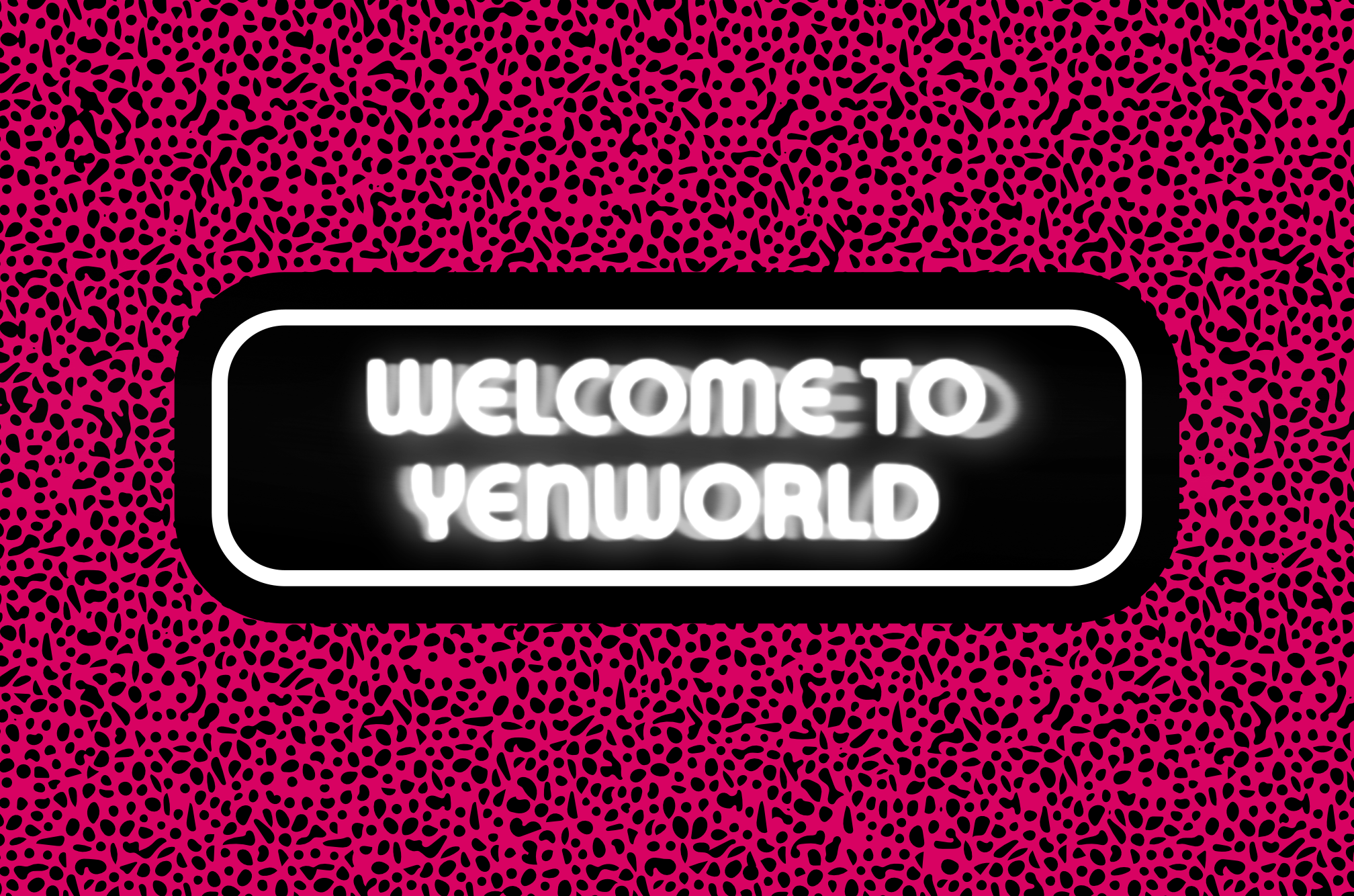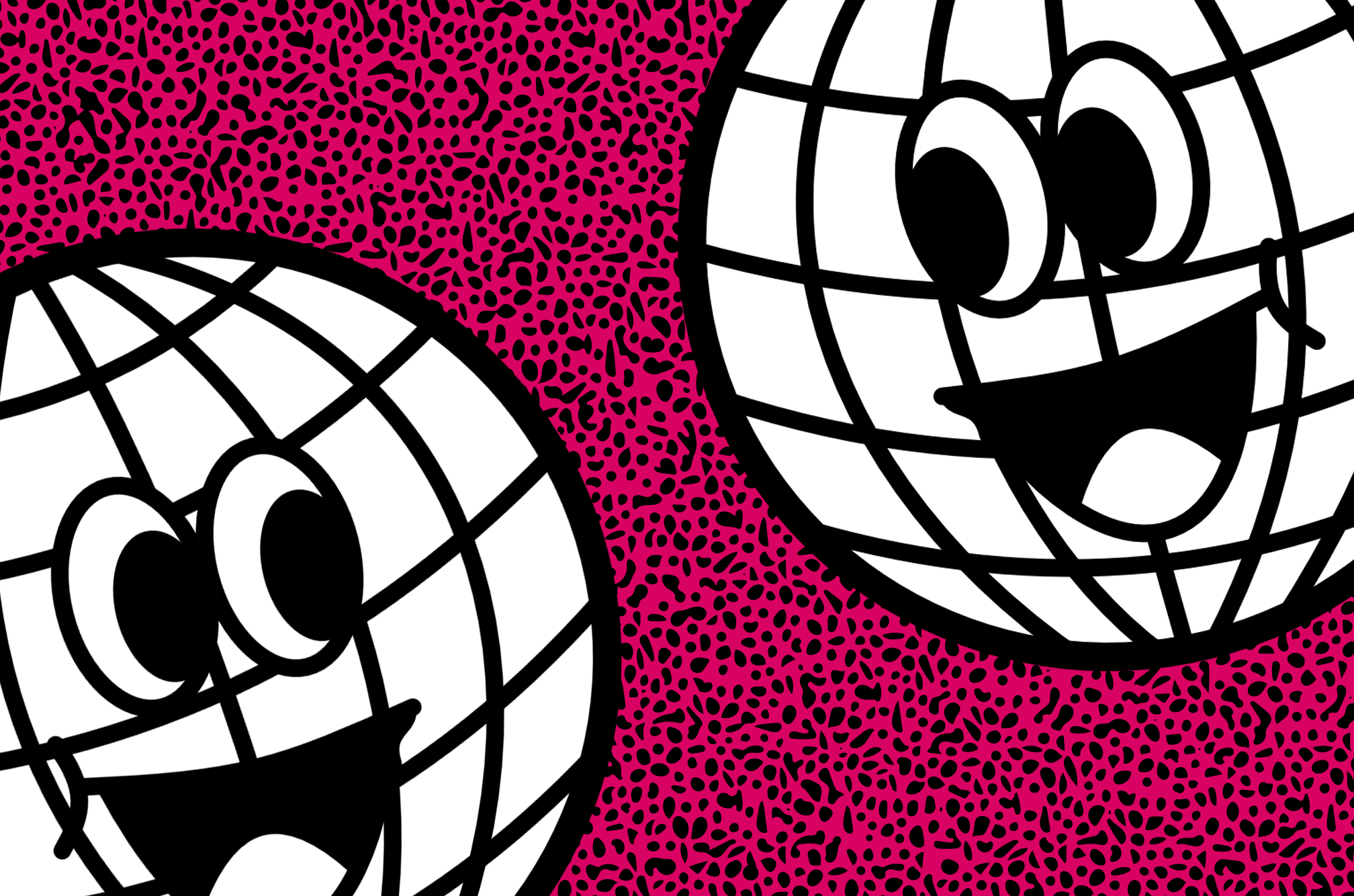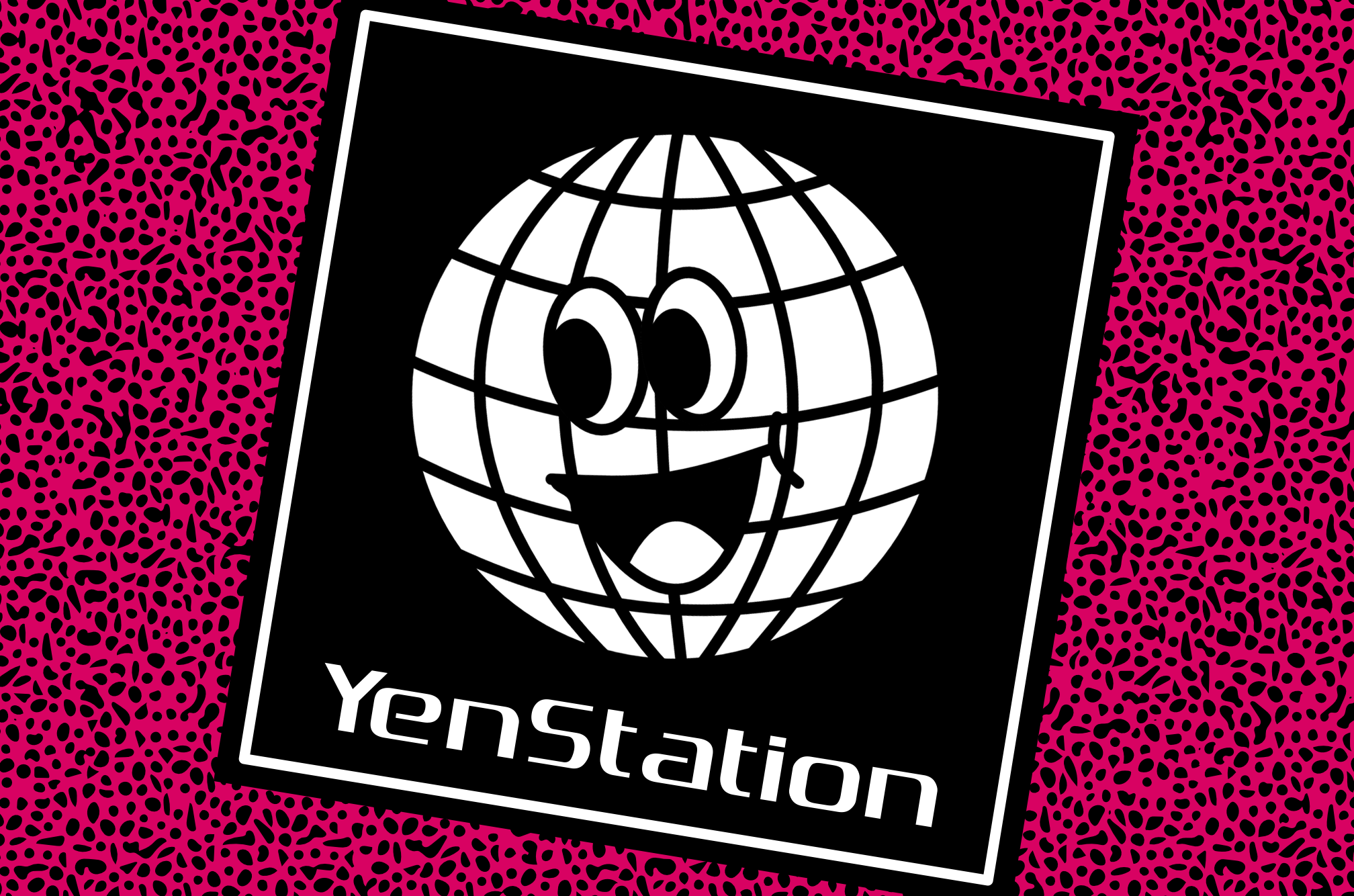 Interviews
Interviews
Yen Disco Soundsystem pay homage to the quintessence of Asia’s diverse musical roots
“We’re also proud of our own mixed-Asian roots so we explore using traditional instruments, sounds and scales. Which is something us Asians should be proud of because there’s much interest in Asian culture now.”
Let’s put trends aside, and throw a tonne of personal flavour in instead. Is that not the music we want… that we should want more of?
And with so much global disparity that’s been further etched into our lives, across all realms (money, love and even gender/sex), music is the one place we can always truly find ourselves in — and quite simply because of wide-minded folk, like the gents behind Yen Disco Soundsystem.
Born out of the pandemic, Yen Disco Soundsystem (YDSS) is a Singapore and Japan-based label with roots planted in house, jazz and hip hop. The pandemic expanded their musical horizons and they dived into deeper realms of nostalgic house and electronica; combined with their commitment to showcasing their mixed-Asian heritage, YDSS are here to be a formidable force in the region. There’s no musical stasis about their philosophy — their fluidity in technique and thought is something to be admired, and Mixmag Asia is excited to announce their debut LP, ‘YENWORLD’.
Arun Ramanathan gets to know the pair of Yenboy and MZA who fabricated the blueprint of Yen Disco Sound System, as their debut ‘YENWORLD’ LP drops today.
The musical foundation of YDSS is very diverse. What are your core values for the label?
That’s a good question, we do worry at times that our interests in genres get too far out till it becomes detrimental for us. In that it’s hard to follow our releases if there’s an expectation of staying in the same genres consistently.
We do remind ourselves that a principle we stick by is to make music that interests us. We’re not too concerned about chasing trends and forcing ourselves to stick to particular styles. Actually, when we first started the label our focus was supposed to be hip hop, house and possibly jazz music but during the pandemic we had so much more free time that we ended up listening to all sorts of music. It kind of corrupted the idea and made us more ambitious.
How did the Singapore and Japan connection happen?
MZA: We’re both from Saitama and lived near each other around the Warabi and Urawa area. Kinda knew each other as kids but I moved away to Singapore early on. We’d still connect whenever I go back to visit family through the years.
Yenboy: That’s why there’s a lot of references to Saitama in our projects. Most people, especially friends from Tokyo like to say there’s nothing there or joke that it’s the countryside even though it’s quite suburban too. We just want to pay homage as much as we can.
MZA: Yeah that’s a good point. Also in terms of music styles we balance each other out because I veer towards darker sounding music and with my roots in a hip hop production style working better for me. Whereas Yenboy is more into 4/4 beats and prefers fiddling with synths and more upbeat textures.
What’s the best part about living in Tokyo?
Yenboy: That there’s just a lot to do and see all the time. Because it’s an Asian stop point for a lot more international artists/DJs so there’s opportunities to attend more diverse gigs. I feel the gig crowd is more open and obsessive about music too. While we are still quite reserved, there is a different energy here.
What’s the best part about living in Singapore?
MZA: I can’t really top what Yenboy said, but it is definitely much more convenient here in terms of commuting and cost-wise. That gives me a lot more time at home to do label related stuff. Which suits me as I’m more introverted and like being in the lab working out new music concepts.
"We do remind ourselves that a principle we stick by is to make music that interests us. We’re not too concerned about chasing trends and forcing ourselves to stick to particular styles."
The label recently started a residency with Hong Kong Community Radio, how did that happen?
MZA, Yenboy: That is a really random thing actually because neither of us has been to Hong Kong yet though we plan to for sure. We had been thinking of doing a show to tie into our concept of Yenworld and were looking around for a platform we could try pitching to. Coincidentally a tech director, Robbie, for HKCR followed our account and it clicked. The diversity of shows on their platform is just as wide as our ideals. We felt it was a good match so got in touch, pitched our show and here we are with a residency.
Naturally on our monthly show, it follows the same anything goes principle. We imagine it to be transmissions from this other place where we’re sharing music we’re into at the time. At this point, we’re only into episode 3 but we’ve cycled through a fair bit of genres already. Plus we are planning on inviting guests which should be exciting.
You mentioned the label taking inspiration from a diverse range of artists. Can you name a few, and why?
MZA: For myself, DJ Krush and Jeff Mills are huge inspirations. The way they’ve shaped their careers, in terms of sound they’ve been extremely fearless in going from hip hop/club-oriented DJs into pioneering trip hop and techno maestros. To this day, still pushing their sound and themselves even further. I’m trying and hoping to progress in a similar way, starting out as a hip hop DJ but now evolving more into a drum’n’bass style and eventually who knows what else.
Yenboy: For me I grew up listening to a lot more disco and soul music because of my parents so that naturally made me more interested in house music because of the influences and similarities. Artists like Boney M and Patrice Rushen got a lot of playback in my home. Producers like Dave Lee fka. Joey Negro, Basement Jaxx, Fatboy Slim and MJ Cole made a huge impact on me because of their prominent soulful disco style. Hopefully I can make more music with the same energy and feeling.

The debut LP features a wide range of styles ranging from trip hop, house to drum’n’bass. Where did the idea of a diverse curation come from?
Our concept of the LP ties into our idea of Yenworld as an inter-dimensional place where music doesn’t necessarily need to be tied to genres and are truly freely interchangeable. A place where music is the basis of all life. We’re hard sci-fi and cyberpunk freaks, plus we love Drexciya and the lore that comes with it. So naturally we wanted to create an interesting concept and storyline too. Because we have a roster willing to create such a wide range of styles on this LP, it didn’t limit us too much and allowed us to be even more off the wall.
At some point the idea of doing skits came up too. Which we felt was outrageous for an album like this, but we loved it and tried to do a manzai (Japanese comedy) style. Though we tried to not go too overboard with the skits like a 90’s hip hop album. Settled on doing two short ones and an interlude in the middle to help the album transition into the 80-90bpm tracks which close out the album.
There’s a heavy 90’s influence across a few of the singles, particularly Yenboy’s ‘Return of the Mayfly’ — where does that stem from?
Yenboy: Definitely because we were all born in the early 90s and had vivid, idealised memories of the late 90’s to early noughties. So much so that we revisited that era of music a lot which is where we pulled that energy and influence from.
Fun fact, ‘Return of the Mayfly’ is actually a reference to one of our favourite Gundam series. As much as we can we want to incorporate random pop culture things we like. Most of these tracks we plan to include on future separate full lengths because there are different concepts already in the works. Like say for Mayfly, we’re possibly exploring more of an intergalactic disco, electro-punk feel.
Listen to 'Return of the Mayfly' here.
Just like previous releases, MZA’s ‘四季ステッパー’ has plenty of nostalgic flavour — are there any studio techniques you can share about achieving that style of sound?
It’s probably all the older gear we use. We’re not too particular about how hi-res our tracks sound sometimes since we’d process our sounds through a Boss SP-202 or Roland SP-404 just to saturate the track and glue it all together.
On this album we actually used the Koala Sampler, a phone app, quite a lot as we were busy since the pandemic restrictions were starting to loosen up and normal life was resuming slightly. During our commute or lunch breaks, we’d sketch out ideas on the app and finish them at home on our DAW or equipment. Pretty crazy to think that a phone app could help create albums but that’s the reality we live in now.
Listen to ‘四季ステッパー’ here.

What’s the most bizarre gig you’ve ever played?
MZA: Can’t say I’ve had any gigs that were outright bizarre but some corporate ones get pretty strange truthfully. When you have repressed white-collar executives and free flow alcohol on a corporation’s dime, that gets real intense. By the end of the night there’d be some bigwig screaming in my face to play ‘99 Luftballoons’ by Nena. Lovely experience, highly memorable.
There is a lot of pressure to play popular music and sell tickets. What’s your stance on that?
Yenboy: It’s a very challenging time we live in now. With the focus from the mainstream to create more content as opposed to actually creating music. With the aim to generate more capital on social media. Now we’re seeing music that’s stripped to its basics in the way that it’s more like loops with very carefully engineered hooks or choruses to catch the Tik Tok audience and go viral.
For us, we try to stay true to our preferences, beliefs and focus on creating sounds that are more classic and forward-thinking. Naturally that doesn’t make our sounds very popular in a mainstream sense but we’re hoping similar like-minded people will like what we do and get connected to us.
What’s your role in shaping the future of this planet?
Yenboy: To create more openness, acceptance and pride in people through music. What we’re creating with YDSS shouldn’t be unusual in that we openly explore ideas and generate sounds that bridge between modern and traditional. We’re also proud of our own mixed-Asian roots so we explore using traditional instruments, sounds and scales. Which is something us Asians should be proud of because there’s much interest in Asian culture now. Like the obsession with K-Pop, City Pop and Japanese Jazz music but it’s also important we remember not to sell our history and culture just like products too.
What’s the best and worst thing about Asia’s music scene?
One of the things we like about our scene here is that it’s a very diverse melting pot of cultures and sounds with much larger histories than we know. There’s so much going on and music being created that it’s impossible to cover everything. It’s exciting that there’s a treasure trove of sounds just waiting to be discovered or rediscovered in our region.
While this is based on our own experiences, at times there can be a tendency to support artists after gaining credibility or validation from overseas, perceived social media hype or giving into group influence by peers. As opposed to genuinely seeking and embracing new ideas or our true preferences as individuals. Hopefully we can put our money where our mouths are and support our favourite acts.
Yen Disco Soundsystem 'Welcome to Yenworld' is out now. Grab your copy here.
Arun Ramanathan is Mixmag Asia’s Director. Follow him on Instagram.


